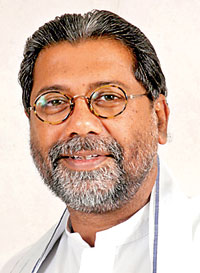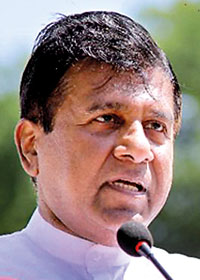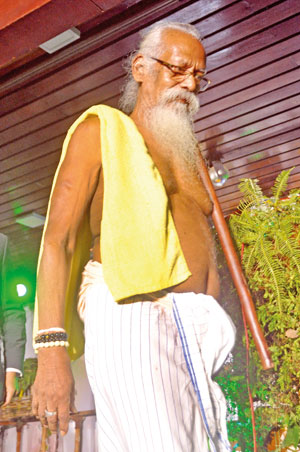News
Constitutional recognition close at hand for indigenous inhabitants
View(s):By Ishu Bandara

Vidura Wickramanayake
A decades-long fight for constitutional recognition of rights of Sri Lanka’s indigenous peoples is nearing its goal.
After 26 years of campaigning by various stakeholders, including the small community of Adivasi people, the Center of Policy Alternatives, and the involvement of several government departments, civil society, the Ministry of Wildlife and Forest Resources Conservation, and Mahaweli Authority, a draft concept paper for the Rights of the Indigenous People gained Cabinet approval this week. The legal draftsman will be instructed to prepare a bill.
In January last year, Uruwarige Wannila Aththo sought the intervention of the Human Rights Commission of Sri Lanka as well. He also sought a national identity card for the community.
The draft says that indigenous people have the right to their traditional medicines and maintain their health practices, including the conservation of vital medicinal plants, animals and minerals. It further emphasises that indigenous individuals have the right to access all social and health services without any discrimination.
Additionally, it highlights that indigenous peoples have the right to maintain and strengthen their distinctive spiritual relationship with their traditionally owned lands, territories and other resources, and to upload their responsibilities to future generations in this regard.

Wijeyadasa Rajapakshe
The draft mainly consists of 20 articles related to the protection of indigenous people’s rights.
Buddha Sasana, Religious, and Cultural Affairs Minister Minister Vidura Wickramanyaka told the Sunday Times, that the Cabinet approved all 20 articles of the proposed Rights of the Indigenous People draft.
Additional Secretary Nishanthi Jayasinghe of the ministry said it will take another week to see the official draft prepared for submission to finalise the bill.
“The Prime Minister’s Office has forwarded the draft to the Cabinet. We have not yet received the draft after confirmation. It will take approximately one week to receive confirmation and for decisions to be made. Until then, we cannot provide any further details about the draft.’’
Former minister of justice, prison affairs, and constitutional reform, Wijeyadasa Rajapakshe told the Sunday Times: “Initially the draft bill has to be submitted for principal approval to the Cabinet. After obtaining this approval, a final draft is prepared as a bill, together with the certificate of Attorney General with regard to its constitutional geo fit, then the final draft is submitted to the cabinet for a second time, only after that will the bill be gazetted. After the Cabinet approval, it takes only one or two days for the bill to be gazetted.’’
Once it is gazetted, after seven days, it can be submitted to Parliament for the first reading. Within two weeks it an be challenged in the Supreme Court, if needed.

Wannila Aththo
The apex court will then provide its determination within three weeks. After that, the bill can be submitted to Parliament for the second and third readings, at which point it becomes law.
Indigenous community leader Uruwarige Wannila Aththo told the Sunday Times that he is finally happy after a 26-year wait to hear about the Cabinet decision to approve the draft.
“For 26 years, I had to urge our demands to every single leader appointed to the Sri Lankan government not just for my own sake, but for the entire indigenous community of about 500,000 people spread across six provinces in Sri Lanka. Our only point at issue was how to live our day-to-day lives while protecting our rituals and traditional habitats. We hope that this new law will significantly help in solving our problems,” chief Wannila Aththo said.
Some of the key points outlined in the draft concept of the Rights of the Indigenous People include the recognition of rights to practice and revitalise their cultural traditions and customs. This includes the right to preserve and maintain the manifestations of their culture, both present and past, as well as future ones.
These cultural elements encompass archaeological and historical sites, artefacts, designs, ceremonies, technologies, visual and performing arts, and literature.
Another significant issue highlighted by Chief Wannila Aththo was the barriers they faced in entering the forests to gather medicinal leaves and trees.
The best way to say that you found the home of your dreams is by finding it on Hitad.lk. We have listings for apartments for sale or rent in Sri Lanka, no matter what locale you're looking for! Whether you live in Colombo, Galle, Kandy, Matara, Jaffna and more - we've got them all!

